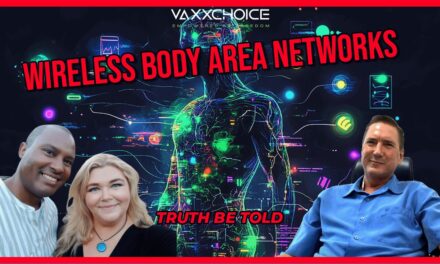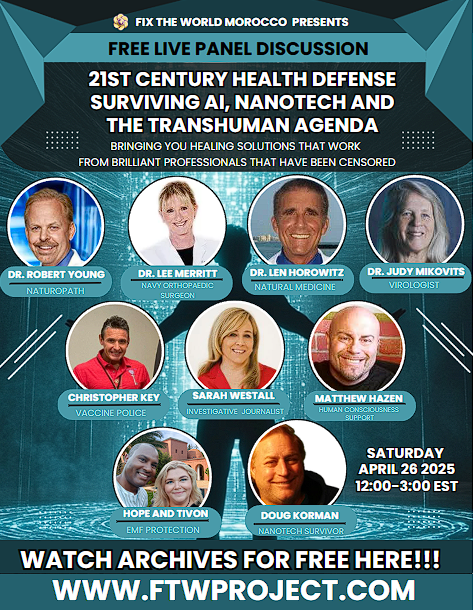Healthcare is becoming more about predicting illness rather than treating it. From genome-based insurance pricing to AI-generated risk scores, supporters say predictive medicine promises a health revolution — but critics are warning us that it’s nothing more than a preemptive profit engine.
What Is Predictive Medicine?
Using algorithms, genetic markers, and biometric data, predictive medicine forecasts who might develop illnesses before symptoms even appear. At first glance, it sounds like a leap towards keeping people healthier for longer by catching problems early, improving care, and reducing costs.
But beneath the surface, it feels like an opportunity to monetise the data-driven findings, and raises vital questions about fairness and consent. Who’s at risk, and who really benefits?
AI-Driven Diagnoses
The NHS, United Health Group, and Kaiser Permanente are just a few of the major healthcare providers using AI to determine patient eligibility, prioritise care, and flag high-risk patients.
- A recent report from the Brookings Institution highlighted concerns that predictive tools are being implemented without sufficient oversight by regulators, making the systems less transparent and more immune to public accountability [Source: Brookings]
- A 2022 BMJ study warned that AI tools for predicting health patterns may rely on flawed or incomplete data sets, perpetuating racial and/or socioeconomic bias [Source: BMJ]
- In 2023, the NHS started using machine learning in pilot programs to fast-track identification of cancer patients deemed at risk, deprioritising those with lower projected benefit [Source: Gov.uk]
- AMA reports that AI tools tell insurance companies to deny treatment for up to 16 times more patients than if they were subject to human review, and warns AI must be used under strict supervision [Source: AMA]
Profit: A Key Motivator
Amidst the potentially far-reaching positive outcomes of predictive medicine, there is a lucrative, booming economy based around preempting health issues:
- AI health start-ups (like Babylon, Deep Genomics, Tempus) are attracting billions in funding
- Genetic testing firms are partnering with insurers, offering preemptive pricing models and creating risk scores
- Private insurers use prediction tools to reject policies or increase premiums
Analysts say the predictive health industry in the U.S. alone will be worth approximately $50 billion by 2030, growing at a rate of 32.5% per year from the current valuation of $11.6 billion. With the inevitable influx of dividends and data for corporations, are patients losing autonomy over their own bodies?
Real World Impact
Can you imagine a world in which you’re denied treatment not because you’re sick, but because an AI-generated model has predicted you might not respond well? Or being secretly overcharged for insurance premiums simply because of your genetic profile — something totally out of your control?
A 2023 survey by the European Commission found that an alarming 68% of people were unaware that their health data was being used to train AI tools. Yet more than 50% of NHS trusts are now piloting AI-based risk assessments and triage systems in every day care, despite a 2024 King’s College London report warning of a “risk caste” system, classifying and filtering patients without ever telling them how the decisions were made.
How Hospitals Are Changing
Predictive medicine is already changing the culture of hospitals and healthcare practices worldwide:
- In the U.K., some NHS trusts are piloting risk-based triage systems, where patients’ algorithmic profiles are influencing whether they are fast-tracked or added to a waitlist [Source: NHS Confederation]
- UnitedHealth were sued in 2023 for “deploying an AI model known by the company to have a 90% error rate, overriding determinations made by the patients’ physicians that the expenses were medically necessary” leading to excessive deaths in the elderly [Source: CBS]
- Reportedly, some private U.S. hospitals are using AI not just to diagnose patients, but to determine who gets admitted in periods of overcapacity
Healthcare workers have voiced concerns that these AI systems — which, in theory, can be used for good — are turning doctors into interpreters of automated forecasts, rather than key decision makers.
Secret Shifts in Policy
Have you ever been asked how you feel about the future of your healthcare systems? The public is rarely, if ever, consulted when predictive frameworks are introduced, but behind the scenes, it’s all quietly changing:
- The U.S. Department of Health and Human Services has funded AI triage systems despite calls for transparency from watchdogs like ACLU and EPIC [Source: U.S. DoHHS]
- The E.U. AI Act explicitly warns against opaque medical algorithms operating without human review, yet usage is already growing across the continent
- The UK’s Genome UK Strategy outlines plans to integrate genomic risk data into GP services by 2030 [Source: Gov.uk]
- The World Health Organisation reported in 2023 that predictive tools must be accompanied by robust ethical frameworks, but enforcement currently looks weak [Source: WHO]
These changes are being framed as progress, but critics argue that they quietly introduce risk-based discrimination and apply gate-kept criteria to make key decisions about our health without us knowing — and we don’t even get a say.
The Age of Prediction is an Insurer’s Dream
Actuarial tables are being replaced by real-time data, behavioural tracking, and DNA scans. We’re seeing discounts offered for individuals with wearable health devices, tracking sleep, exercise, and heart rate, which also work against the sick or genetically predisposed. Whistleblower reports are surfacing about more UnitedHealth care denials to vulnerable nursing home patients, indicating that the use of AI is less about preventing illness, and more about pricing risk and shifting liability. [Source: Whistlebloweraid]
Some U.S. states are introducing legislation to prevent the use of genetic data in deciding premiums for customers, but enforcement is spotty and opaque. And in the U.K., the Association of British Insurers have determined that the use of predictive genetic test results is voluntary rather than legally binding — with critics determining that there’ll be no meaningful restrictions in their usage.
Final Thought
Predictive medicine is being sold as innovation. But when profit incentives, bio-surveillance, and opaque algorithms come together, the line between care and control begins to blur.
Is this a way to prevent illness, or to accurately predict the profitability of it?
Source: https://expose-news.com/2025/07/17/predictive-medicine-how-ai-now-controls-your-healthcare/
Bitchute: https://www.bi,tchut,e.com/channel/YBM3rvf5ydDM/
Telegram: https://t.me/Hopegirl587
EMF Protection Products: www.ftwproject.com
QEG Clean Energy Academy: www.cleanenergyacademy.com
Forbidden Tech Book: www.forbiddentech.website




![A CRUEL SUMMER AWAITS [2024-04-09] – PATARA (VIDEO](https://www.hopegirlblog.com/wp-content/uploads/2024/04/A-cruel-summer-awaits.png)








